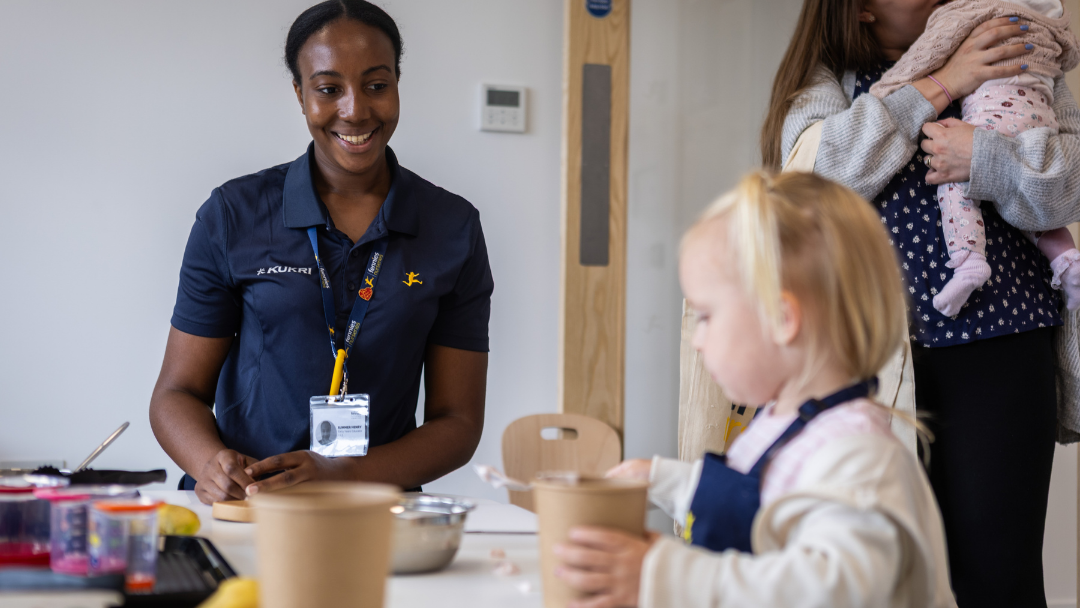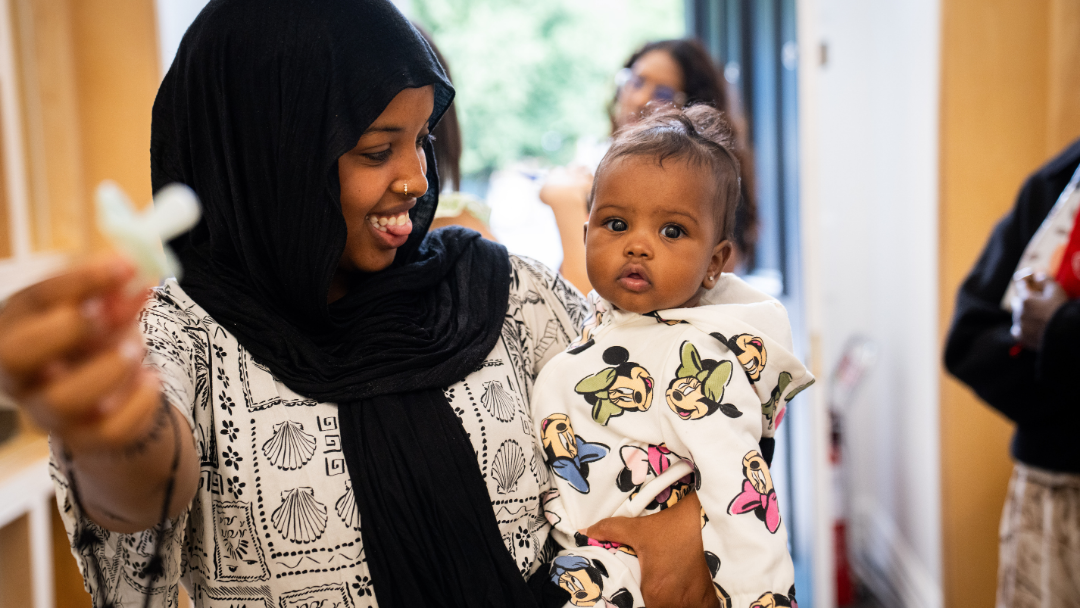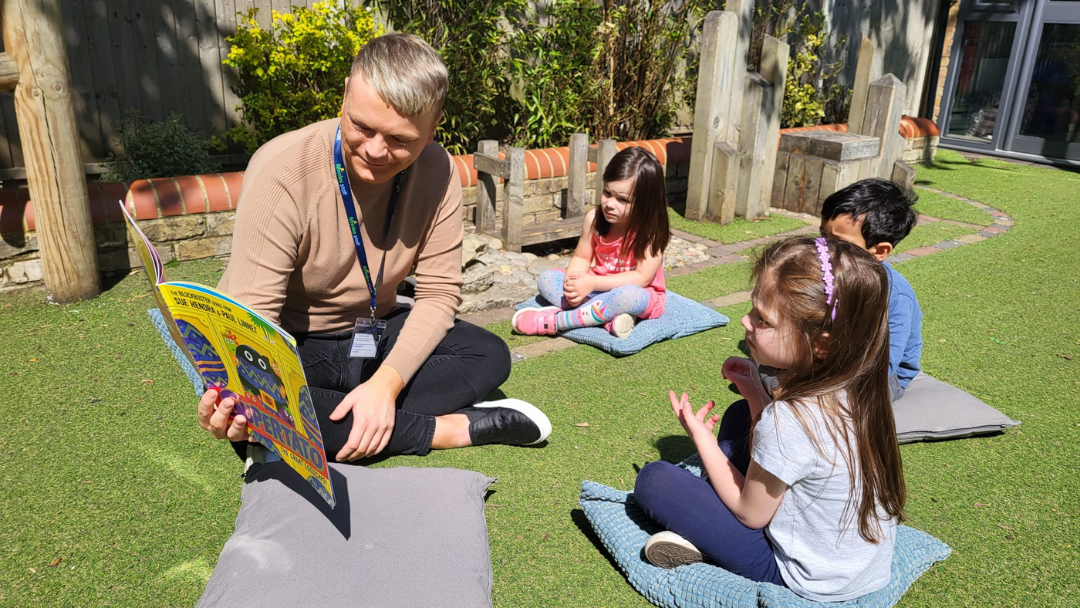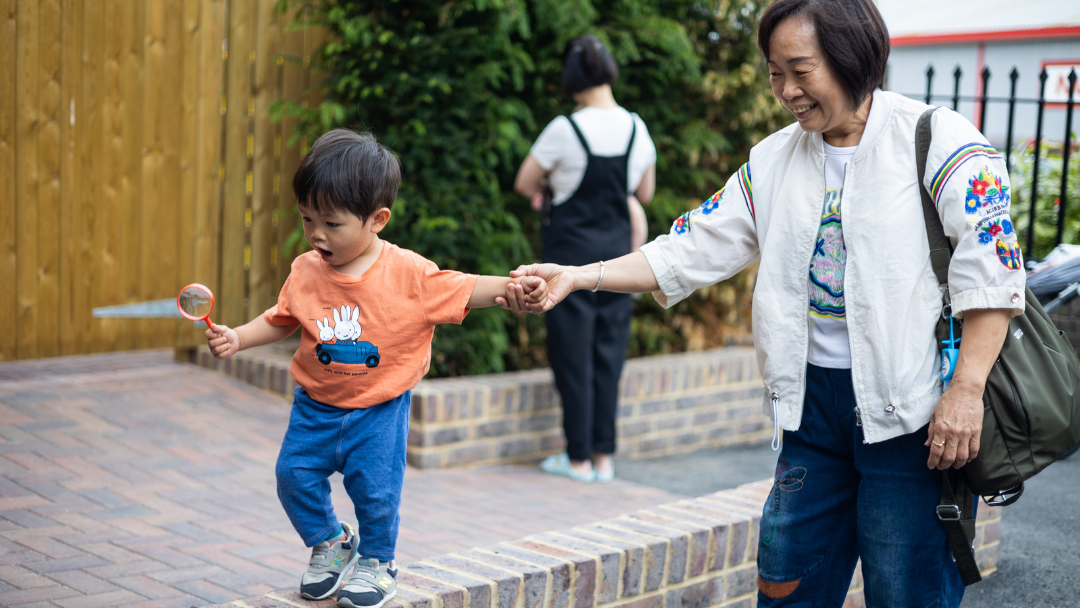Supporting toddlers as they experience strong emotions can sometimes be one of the trickier essences of parenting. These moments can often leave parents wondering what’s the best way to respond, but they are a natural and important stage of development. With the right approach, they can also become valuable opportunities to connect with your child and learn from it. This blog will share practical tips to help you guide your child through their emotions with patience and care, whether it’s a moment of mystery in the supermarket or resistance at bedtime.
- Understanding Emotions In Toddlers
- Proactive Ways To Support Emotional Wellbeing
- Responding To Strong Feelings
- Reflecting After Emotions Have Settled
- When Extra Support May Be Helpful
- Final Thoughts
Understanding Emotions In Toddlers
It’s very common for younger children to have intense emotional reactions.. Research has found that these types of experiences occur in 87% of 18-24 month-olds, 91% of 30-36 month-olds and 59% of 42-48 month-olds.
These emotional scenarios can occur due to a variety of reasons, often leaving parents feeling frustrated and helpless. Understanding the underlying causes of these can empower parents to respond in ways that focus on nurturing emotional growth rather than simply managing behaviour.
Why Do Toddlers Feel Things So Intensely?
The psychology of a toddler is complex. At this stage, children are developing independence but often struggle to express their feelings verbally to explain what they need. Emotional regulation is a skill that young children are still mastering, which makes it easier for disappointment or frustration to spill over.
If a child reacts strongly, it isn’t because they are purposely being difficult, but more because emotions such as anger or sadness are unfamiliar to them. Recognising this can help parents approach the situation with empathy rather than frustration.
Furthermore, during these intense feelings, toddlers may also be testing boundaries and looking for reassurance, which is a natural part of their development. Understanding that these behaviours are not merely defiance but rather a part of their learning process can help parents respond more effectively.
What Can Make Emotions Harder To Manage?

Identifying the everyday factors that make it more difficult for toddlers to cope in certain scenarios is highly beneficial. Tiredness, hunger or frustration are all common causes, while external factors like loud environments with high volumes of noise and busy crowds can add to their worries.
Changes in routine, such as starting nursery or welcoming a new sibling, can lead to added emotions for toddlers. Additionally, sensory overload is another significant factor; toddlers are often highly sensitive to their surroundings. Bright lights, strong smells or even certain textures can overwhelm their developing senses. Creating a calm and predictable environment can help provide a sense of security and reduce these pressures.
Proactive Ways To Support Emotional Wellbeing
Supporting children before emotions escalate is often easier than trying to help them once they feel overwhelmed. Parents can employ various proactive strategies to give toddlers the tools and confidence they need.
Establishing A Consistent Routine
Children thrive on routine. Establishing consistent daily schedules can provide toddlers with a sense of security. When they know what to expect, such as regular meal times and nap times, they may be less likely to become overwhelmed.
Incorporating transitional activities, like warning them before moving from one activity to another, can also aid in easing the transition and reducing the potential for any escalation of emotions. For instance, a simple countdown or a visual timer can signal that playtime is coming to an end, allowing children to mentally prepare for the change.
Encouraging Emotional Expression

Encouraging toddlers to express their emotions verbally can be a game-changer. Teaching children simple phrases to describe their feelings, such as “I feel sad” or “I feel cross”, can help them communicate their needs before they escalate. Using storybooks to discuss emotions can also be beneficial, helping toddlers to connect their feelings with characters in the tales they read.
“Showing appropriate emotion in front of our children, for example; “I’m disappointed” or “I’m going to take 3 breaths.” It helps teach that feelings are safe to feel and possible to manage.” says Paula, our Regional SENDCo & Inclusion Manager. It’s important that we display the behaviour we want our children to emulate.
Additionally, role-playing different scenarios where emotions come into play can further enhance their understanding. For example, parents can act out situations that might cause frustration or joy, allowing children to navigate these feelings in a controlled environment, thus equipping them with the tools to handle similar situations in real life.
Responding To Strong Feelings
Even with preparation, children will sometimes still feel overwhelmed. How parents respond in these moments is key, as it can not only calm the situation down, but also teach important lessons about managing them going forward.
Staying Calm
Children often reflect adult emotions; if a parent becomes frustrated or angry, it can intensify the child’s emotional reaction. Taking deep breaths and maintaining a calm demeanour can help to diffuse the situation. By modelling emotional regulation, parents provide a framework for their children to learn how to cope with their own emotions in a healthier way.
Communicating With Care

During heightened emotions, simple and clear communication is key. Parents should use short, straightforward sentences to acknowledge their child’s feelings, such as “I see you are upset”, acknowledging their feelings without judgement.
Once things begin to settle, it’s helpful to gently offer choices, which can help toddlers regain a sense of control. Offering two alternatives, like “Would you like to play with blocks or read a book?” provides them with the power to make decisions.
Reflecting After Emotions Have Settled
When emotions have passed, addressing the situation thoughtfully can reinforce positive behaviour and encourage emotional growth.
Encouraging Positive Behavior
Notice when your child expresses themselves in calmer ways and praise their effort. Positive reinforcement, such as praise or a small reward for expressing feelings or resolving conflicts more appropriately, reinforces desirable behaviour.
This approach teaches them that there are effective alternatives to crying or shouting, making it more likely for them to try these strategies again.
Talking It Through
Once everyone has calmed down, it’s beneficial to revisit what just happened in a gentle and constructive conversation. Discuss what happened, how they felt and what could be done differently next time. These open-ended questions can help turn a challenging moment into an opportunity for growth.
When Extra Support May Be Helpful
Strong feelings are a normal part of toddlerhood, but there are instances where parents may want to consider professional guidance.
Signs To Look Out For
If your child’s reactions are very frequent, last a long time or cause harm to themselves or others, it may be worth seeking support. Other signs can include extreme difficulty in calming down after a tantrum or physical harm to themselves or others during these outbursts.
Where To Find Help
There are numerous resources available for parents seeking assistance. Support groups, parenting classes and professionals can offer valuable strategies and reassurance. Additionally, online forums and community groups can provide a sense of solidarity among parents experiencing similar challenges.
Final Thoughts

Helping toddlers through their emotions is about patience, consistency and empathy. While sometimes they can be difficult, these moments play an important role in a child’s ability to build resilience and emotional understanding. By staying calm, setting clear boundaries and validating their feelings, you can help ensure your child feels secure and supported.
But most importantly, every challenging moment is also an opportunity to strengthen your relationship with your child and nurture their mental wellbeing. With both time and practice, you and your toddler will become more confident in handling emotions together.
FAQ
Subscribe to our newsletter
Stay up to date with Fennies news


.png)







